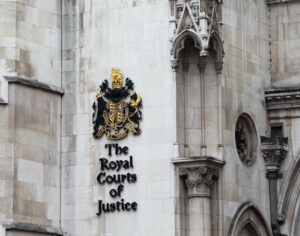The latest moves against NPR and PBS by Trump’s newly minted FCC chairperson Brendan Carr, has many noncommercial radio stations waiting for the other shoe to drop.

Nine days after becoming Trump’s new FCC Chair, Brendan Carr has declared war on noncommercial broadcasters. We’re talking about those FM stations that are largely crowded into the lower end of the FM dial, between 87.9 and 91.9 MHz, as well as noncommercial television stations. While Carr’s opening salvo was carefully aimed at NPR, PBS, and their affiliates — it’s also given other broadcasters with noncommercial licenses the jitters.
“I don’t want to say afraid, but we’re fearful,” the general manager of a nonaffiliated noncommercial station in California told me. He agreed to talk only if he could remain anonymous, fearing the type of retaliation that’s become a Trump trademark. “We’re seeing it in reality in our world today, and we don’t want to make ourselves a target.”
It Depends on What Your Definition of ‘Commercial’ Is
Carr’s opening shot was in the form of a letter addressed to Katherine Maher and Paula A.Kerger, the presidents and CEOs of NPR and PBS respectively, telling them that he’s instructed the FCC’s Enforcement Bureau to launch an investigation against their member stations. The purpose of the investigation is to see if the member stations — whose noncommercial licenses forbid them to air commercials — are airing content that crosses the line between on-air acknowledgements of underwriters’ support and advertising.
“I am concerned that NPR and PBS broadcasts could be violating federal law by airing commercials,” he wrote. “In particular, it is possible that NPR and PBS member stations are broadcasting underwriting announcements that cross the line into prohibited commercial advertisements.
“It is important to me, as Chairman of the FCC, that NCE [noncommercial broadcast stations] stay true to their important missions and refrain from operating as noncommercial in name only. That is why, as noted above, I have asked the FCC’s Enforcement Bureau, with assistance from the FCC’s Media Bureau, to initiate an investigation into the underwriting announcements and related policies of NPR, PBS, and their broadcast member stations.”
Anybody who’s spent time listening to NPR will immediately know that Carr is talking about top of the hour announcements that say something like “the following program is brought to you by [insert company name here],” which serve the purpose of acknowledging a business that’s helping the station pay its bills. Along with fundraising drives, which is where most noncommercial stations receive the majority of their funds, these announcements have been a part of the noncommercial radio landscape for about as long as it’s existed.
The FCC has rules that define what’s allowed in these announcements, and over the years the agency has relaxed the rules considerably, which has attracted more sponsors who have often found that having their name announced as a supporter of the local NPR affiliate is good for business.
According to Carr, the purpose of the investigation… actually the purpose of the letter itself, is to convince Congress to quit funding public broadcast stations.
“For your awareness, I will be providing a copy of this letter to relevant members of Congress because I believe this FCC investigation may prove relevant to an ongoing legislative debate,” Carr wrote. “In particular, Congress is actively considering whether to stop requiring taxpayers to subsidize NPR and PBS programming. For my own part, I do not see a reason why Congress should continue sending taxpayer dollars to NPR and PBS given the changes in the media marketplace since the passage of the Public Broadcasting Act of 1967.”
The only good news is that there is dissent on the FCC’s Board of Commissioners, with two of the agency’s five commissioners — both Democrats — having announced their opposition to the investigation. Anna Gomez, a Biden appointee, said that the investigation appears to be an attempt to “weaponize the power of the FCC,” and Geoffrey Starks said that Carr’s statement is of “serious concern.”
This appears to be yet another Administration effort to weaponize the power of the FCC.
The FCC has no business intimidating and silencing broadcast media. https://t.co/F2qOFq9t4q
— Anna M. Gomez (@AGomezFCC) January 30, 2025
Broadcasters Under Pressure
Although both Maher and Kerger have issued statements asserting confidence in their compliance with all regulations concerning announcements for underwriters, it’s not NPR and PBS that are most at risk here. Instead, it’s their member stations and other local stations operating under NCE licenses.
Although federal funding represents a relatively small portion of most public broadcasters budgets, and most if not all would likely survive the threatened loss of federal funding, many station operators don’t think that Carr’s stated goals are the administration’s endgame. Trump has made it clear that he will do everything he can to silence all media outlets that oppose him, and most public radio stations couldn’t afford a protracted court fight should Carr’s FCC decide to start revoking selected local broadcast licenses.
This make all public radio stations that don’t fall in line behind Trump and his policies vulnerable, including stations that don’t receive funding from the federal government.
“The first things he can grab have some government funding attached,” the anonymous radio station manager said. “We, at this noncommercial station, have no government funding so it’s not a direct hit on us, but we certainly stand in solidarity with our NPR sister stations. Beyond that, they’re going to attack content, and we’re very fearful that they’re going to go after our content if it’s not approved by the current regime.”
While local noncommercial radio stations are probably the most threatened outlets right now due to their small size, the Trump administration isn’t limiting its attacks to small media. Trump has sued CBS for $10 billion over a 60 Minutes pre-election interview with Kamala Harris which he says was edited to favor Harris, and on Friday The New York Times, NBC News, NPR, and Politico were informed that they’re losing their dedicated office space at the Pentagon to four other outlets that includes the far right-wing outlets Breitbart News and One America News.
On January 16, when outgoing FCC chairwoman Jessica Rosenworcel dismissed complaints by The Center for American Rights against local TV stations — all dealing with perceived favorable treatment of the Democrat candidate — Rosenworcel said in a statement, “The action we take makes clear two things. First, the FCC should not be the President’s speech police. Second, the FCC should not be journalism’s censor-in-chief.”
Christine Hall has been a journalist since 1971. In 2001, she began writing a weekly consumer computer column and started covering Linux and FOSS in 2002 after making the switch to GNU/Linux. Follow her on Twitter: @BrideOfLinux







I think I am going to write congress and ask why my tax dollars are subsidizing tobacco farmers or EV companies or private space-oriented companies….and others.
Accountability sucks when you’re (NPR) the one being held to account. NPR/PBS are no more journalists than I am a pizza.
Try looking up what was the executive order and the memorandums about.
It was about tax payer funded government biased propaganda both outlets showing. This is nothing new. It was there for decades and even other Republican presidents said they would do that. Trump is the first one to take action.
You know what Obama said? Elections have consequences. That is about the only thing I agree with him on.
You lost.
End of the story.
You were doing damage the past 4 years, money going to foreign countries and causes, funding un-American censorship that both outlets promoted, along with being the mouthpiece of the gov.
Not something my tax money should go to. We will not allow that anymore.